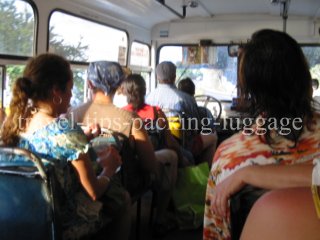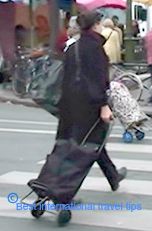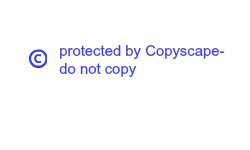Foreign exchange tips for travelling
Use these foreign exchange tips for travelling to save you some hassles and maybe a little cash.
Here are some points to take into account when travelling abroad
- The first thing to do is check to see what currency you will need to use in your destination country.
- Be very careful when exchanging your money. (Euro to dollar or dollar to pesos etc.) Shop around because banks have different charges and go on line and check the going global rate of exchange. You want to make sure to get your best deal.
- It is usually more expensive to exchange money before you leave home than when you arrive at your destination.
- You may only want to exchange just enough to have some cash when you arrive for tips, cabs, and snacks and to carry you over until you can get to an ATM.
- Everywhere airports and train stations give really bad exchange rates so another reason to have a bit exchanged at home. Don’t change money at your hotel they almost never give you a good rate.
- I like to use ice-canada.ca here in British Columbia, Canada for a small amount of money. They have good rates with no fees. I pick it up on my way to the airport. They may have an office near you.
- If you are using a travel agent they usually have an exchange company that they use. They will order your currency, and you can pick up your money at their office when it comes in. I found ice through a travel agent because one time my bank didn’t have any Euros on hand, and it was going to take too long for them to receive my order. Now I use that online service all the time.
- They will deliver to your home, but I am so cautious I always pick up. Some companies that have no fees give you a lower rate or they may give you a high rate but charge a % for a transaction fee. Just make sure you check for fees and rates before you agree to the exchange.
- I never take too much cash as I know I could loose it. Ordinarily I use a debit or credit card after a couple of days at my destination. Here again, all cards have different charges. Make sure that before you leave that you are carrying a card with no foreign exchange fees. Use the cards for larger purchases and cash for small things like the bus were you cannot use a card.
- Never bring so much that it makes you feel uneasy. Don’t draw too much out at once as the banks won’t take coins back when you get home and they buy your notes back at a lower rate than they sell them to you.
- I am a Canadian and the first time I used a card it charged me in pesos exchanged to U.S. even though I am Canadian and then to Canadian dollars. They also charged a percent for doing a foreign transaction. Ouch! I never used that one again. Now I check before I go to make sure I am using a card with no foreign exchange charges and it should go from the foreign currency to your country currency.
- Also, a lot of Canadians change their money to U.S. before they go. I don’t know why. You almost always end up loosing in all the exchanges.
- Surprise - not all countries take U.S. and it can make it difficult if that’s all you have. Oh, and never ever travel outside Canada with Canadian dollars!
- Make sure that you call your bank before you go to let them know that you are going to use your card abroad. I was in Rome, and I could use it for purchases but not for cash at the ATM even though my bank said it would be fine. It happened to me again in Mexico although I have no trouble in Paris. My husband’s card worked every time…different bank. This year I applied for cards from the same bank as him.
- If you are making a purchase, and they ask you if you would like to pay in dollars, even if you are from the United States say no. Even though it makes it easier to understand your transaction you will be paying more for this convenience. The same goes if you are British and they ask if you want to pay in sterling etc. Before you sign your transaction always check to make sure, you are billed in the local currency.
- More reasons to do your homework before you go:In the United States, Canada, Australia, New Zealand and Europe there is good ATM coverage and credit and debit card acceptance. In places like some parts of China, Africa, South America, and South East Asia it can be limited especially if you are travelling outside major cities. This may be time to consider taking some American express travel checks in U.S. dollars.
- Travel checks are safe but are becoming less popular in most countries, make sure before you decide on travel checks that it will be easy to cash at your destination. I like them and always used them up until a few years ago. Bank lines can be long, and they are no longer accepted everywhere even some money exchange kiosks won‘t take them anymore. It is much better now to use an ATM to get cash if you can.
- Another option is prepaid travel cards that are re-loadable and not connected to your bank account.Like always, check to make sure there are no hidden charges. Be careful as sometimes they charge a % to re-load or a charge for the application. Load it when the exchange rate is good if you can.
- Banks exchange money in most countries and can be favorable but not always convenient sometimes only for a few hours a day. In popular destinations, they may have official currency exchange booths they are also convenient but sometimes only accept certain currencies and rates can differ a few blocks apart. Even so I always prefer these to long lines at the bank.
- You will have to show your passport for ID.
a few more foreign exchange tips
- Be very careful when withdrawing money that you are not being watched and carry a little separately so you don’t have to pull it all out to make a purchase. Check around the ATM machine to make sure nothing is loose or out of place. Carry your cards in a protective case so your pin cannot be scanned by someone near you.
- Remember, you will almost always pay interest on a credit card. You may not get a chance to pay it, until after you get home. If you can use a debit card it may make more sense.
- Familiarize yourself with the currency so you will not have trouble using it. Use a calculator or currency converter on your cell phone to get an idea of what things cost compared to your own country
from foreign exchange tips to travel packing tips




New! Comments
Have your say about what you just read! Leave me a comment in the box below.